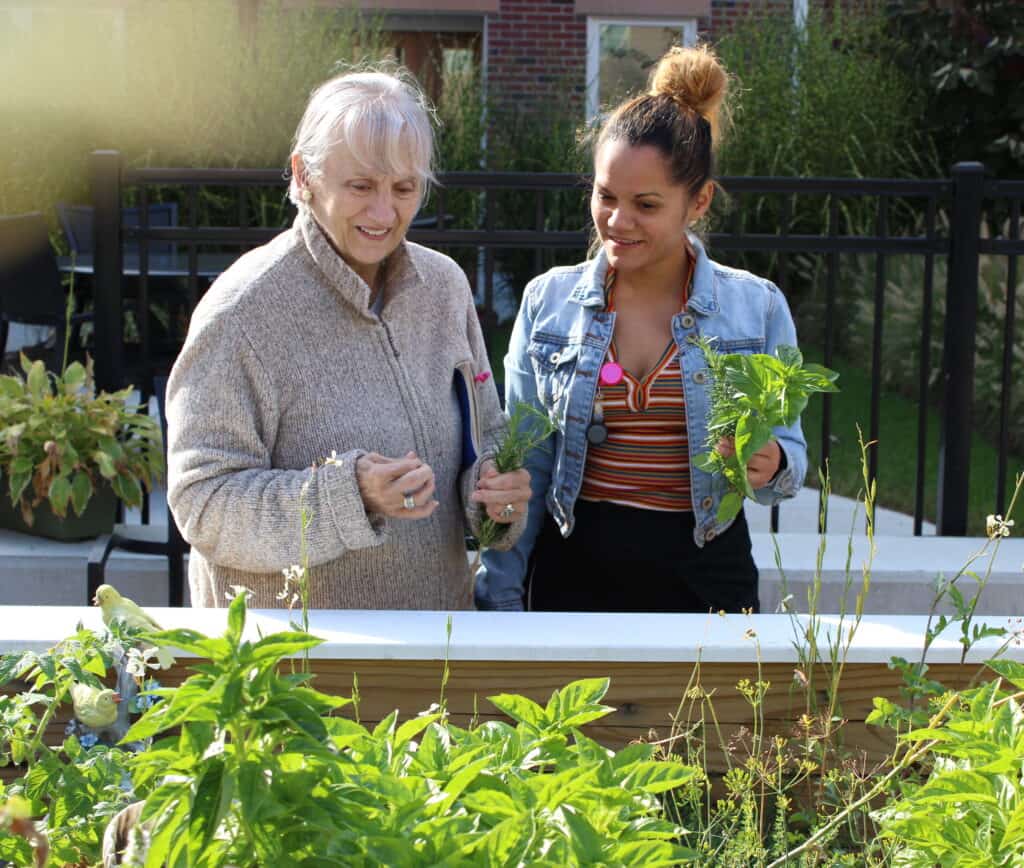The Link Between Staying Social And Aging Well

Whether your social connections are with a spouse, children, siblings, bridge partners or fellow churchgoers, they’re crucial to maintaining good health while growing older.
A recent study published in the Journals of Gerontology Series B: Psychological Sciences and Social Sciences found that those who interacted more with family members and close friends, and even acquaintances and strangers, were more likely to have higher levels of physical activity, less sedentary time, and more positive feelings.
This study is joined by a cohort of other research that suggests that individuals who have more regular social opportunities are at lower risk of developing several age-related disorders like Alzheimer’s disease, osteoporosis, rheumatoid arthritis, heart disease, depression and some forms of cancer.
Another study published in Neurology stresses that socially isolated older adults may be at increased risk of developing dementia. Furthermore, a poorly stimulating environment could result in lower brain volume in the regions that control learning and thinking. Research continues to underscore the importance of making meaningful connections within one’s community, seeking out a stimulating environment, and maintaining an active lifestyle as key ways to slow or even potentially prevent cognitive decline.
The Social Benefits of Joining a Senior Living Community

Those who study and work with older adults agree that one of the best ways for them to consistently benefit from social opportunities is to move to a Senior Living community. The International Longevity Center in New York City explains that a smooth transition into a community is based on whether the new resident is mastering their new environment, whether they have a sense of purpose in life going forward, and whether they are developing positive relationships. Additionally, research by the University of Colorado showed that after older adults move into a long-term care setting, their participation increases in activities like organized programs, religious services, visits with friends or family members, and volunteering. Moving into a senior living community can be extremely beneficial for older adults, as it provides residents with the resources they need to foster a sense of belonging and social connectedness.
At our assisted living communities, we are sensitive to these issues and we have experience creating environments that are focused on helping residents make the most successful transition possible. After their move, residents will have a world of possibilities waiting. Our EnrichedLIFE calendar is filled with meaningful opportunities for them to pursue hobbies, knowledge, fitness, music and the arts. Our goal is simple: to foster each of our resident’s independence with the understanding that help is available should they need it.
An assisted living resident, interviewed for a recent industry study, offered some advice of her own to individuals considering a move. “Keep busy, try lots of activities and make new friends. You have time…USE IT!” She added, “Don’t put it off. Join a community while you are in charge and healthy.”